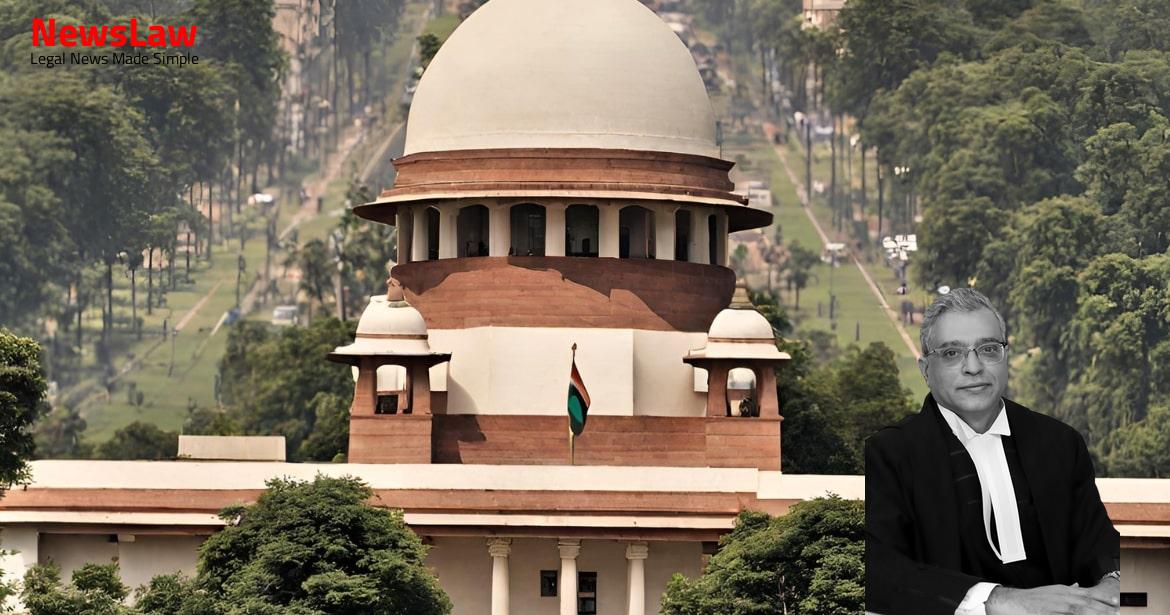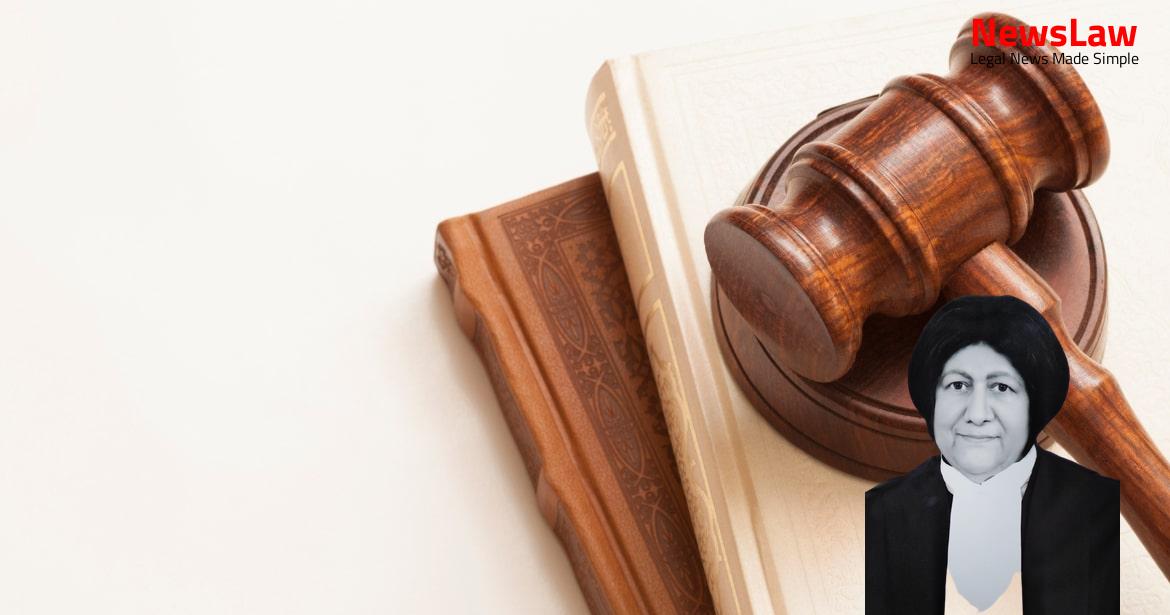The recent legal case delved into the complexities of rectifying continuing wrongs and upholding consumer rights. The court’s in-depth legal analysis has set a significant precedent in addressing the issue of obtaining an occupancy certificate and the resultant higher charges faced by consumers. This summary highlights the key legal principles applied by the court in interpreting the Consumer Protection Act and the Limitation Act, emphasizing the importance of ongoing breaches of contract and the entitlement of consumers to seek damages for deficiencies in service.
Facts
- The NCDRC dismissed the complaint as being barred by limitation and not maintainable under the Consumer Protection Act 1986.
- The appellant claimed that the respondent failed to obtain the occupation certificate from the municipal authorities.
- The respondent applied for an occupancy certificate when the construction of the project was completed in 1997.
- Individual flat owners were not eligible for electricity and water connections due to the absence of the occupation certificate.
- The cause of action for higher taxes and charges by municipal authorities marked the commencement of the limitation period.
- No relief regarding obtaining an occupancy certificate was sought by the appellant in their complaint.
- NCDRC held that the complaint was barred by limitation.
- Members of the appellant booked the flats in 1993 and obtained possession in 1997.
- The possession has been enjoyed by the members since 1997.
Also Read: Electoral Malpractices in Mayor Election
Arguments
- Appellant society occupied premises, arranged water/electricity paying extra charges
- Unauthorized constructions caused delay in obtaining occupancy certificate
- One-time settlement proposal in 2014 didn’t cover additional property tax/water charges
- Consumer complaint in 1998 raised issue of excessive water charges, directed to pay Rs. 1,00,000
- Received Rs. 11,55,885 in 2016 from SCDRC order execution
- Complaint filed 18 years later than the cause of action in 1997, barred by limitation
- Appellant’s failure to include present grievances in prior complaint indicates waiver
- Builder entitled to pay outgoing charges till possession granted in 1997
- Flat purchasers liable for municipal taxes, water, and electricity charges under MOFA Section 12
- Respondent is not a water supply service provider, received no payments for water/property tax
Also Read: Balancing Power and Transparency: Electoral Bonds Struck Down, Disclosure Mandated
Analysis
- The appellant’s complaint is not barred by limitation as the cause of action is of a continuing nature.
- The respondent’s failure to provide the occupancy certificate has resulted in higher charges for the members of the appellant society.
- The NCDRC’s view that the appellant is not a consumer under the Consumer Protection Act due to claiming recovery of higher charges is not subscribed to.
- The failure to obtain the occupancy certificate is considered a continuing wrong and the appellant is entitled to damages.
- Despite orders, the respondent has still not obtained the occupancy certificate since 2014.
- In case of a continuing breach of contract, a fresh period of limitation begins at every moment of time during which the breach continues.
- Section 24A of the Consumer Protection Act 1986 specifies the limitation period for lodging a complaint.
- Section 22 of the Limitation Act 1963 deals with the computation of limitation in the case of a continuing breach of contract or tort.
- Section 2(1)(d) of the Consumer Protection Act defines a ‘consumer’ as a person that avails of any service for a consideration.
- In CWT v. Suresh Seth, a two-judge Bench of the Court discussed whether a default in filing a return under the Wealth Tax Act constituted a continuing wrong.
- Justice PB Gajendragadkar, on behalf of a three-judge Bench, highlighted various obligations under certain laws about property disclosures and possession grants.
- Treaty Construction v. Ruby Tower Cooperative Housing Society Ltd. dealt with compensation for not obtaining a completion certificate, with the Court refusing damages due to lack of basis for liability assessment.
- Balakrishna Savalram Pujari Waghmare v. Shree Dhyaneshwar Maharaj Sansthan elaborated on the concept of a continuous cause of action as explained by Justice ES Venkataramiah.
- M. Siddiq v. Suresh Das reviewed prior judgments on continuing wrongs, noting that certain acts might not be considered ongoing violations.
- Court decisions in Wing Commander Arifur Rahman Khan & Others v. DLF Southern Homes Private Limited & Others and Pioneer Urban Land Infrastructure Limited v. Govindan Raghavan established the failure to obtain an occupancy certificate or meet contractual obligations as deficiency in service.
- Members of the appellant society have the right as consumers to pray for compensation for the liability arising from lack of an occupancy certificate.
- Failure of the respondent to obtain the occupation certificate is a deficiency in service for which the respondent is liable.
Also Read: Recall of Resolution Plan Approval: Legal Analysis
Decision
- The appeal against the NCDRC order dated 3 December 2018 is allowed.
- The complaint is deemed maintainable.
- The NCDRC is directed to review the dispute based on the observations in the judgment.
- The NCDRC is instructed to resolve the complaint within three months from the date of this judgment.
- Any pending applications are to be dismissed.
Case Title: SAMRUDDHI CO OPERATIVE HOUSING SOCIETY LTD. Vs. MUMBAI MAHALAXMI CONSTRUCTION PVT. LTD. (2022 INSC 33)
Case Number: C.A. No.-004000 / 2019



